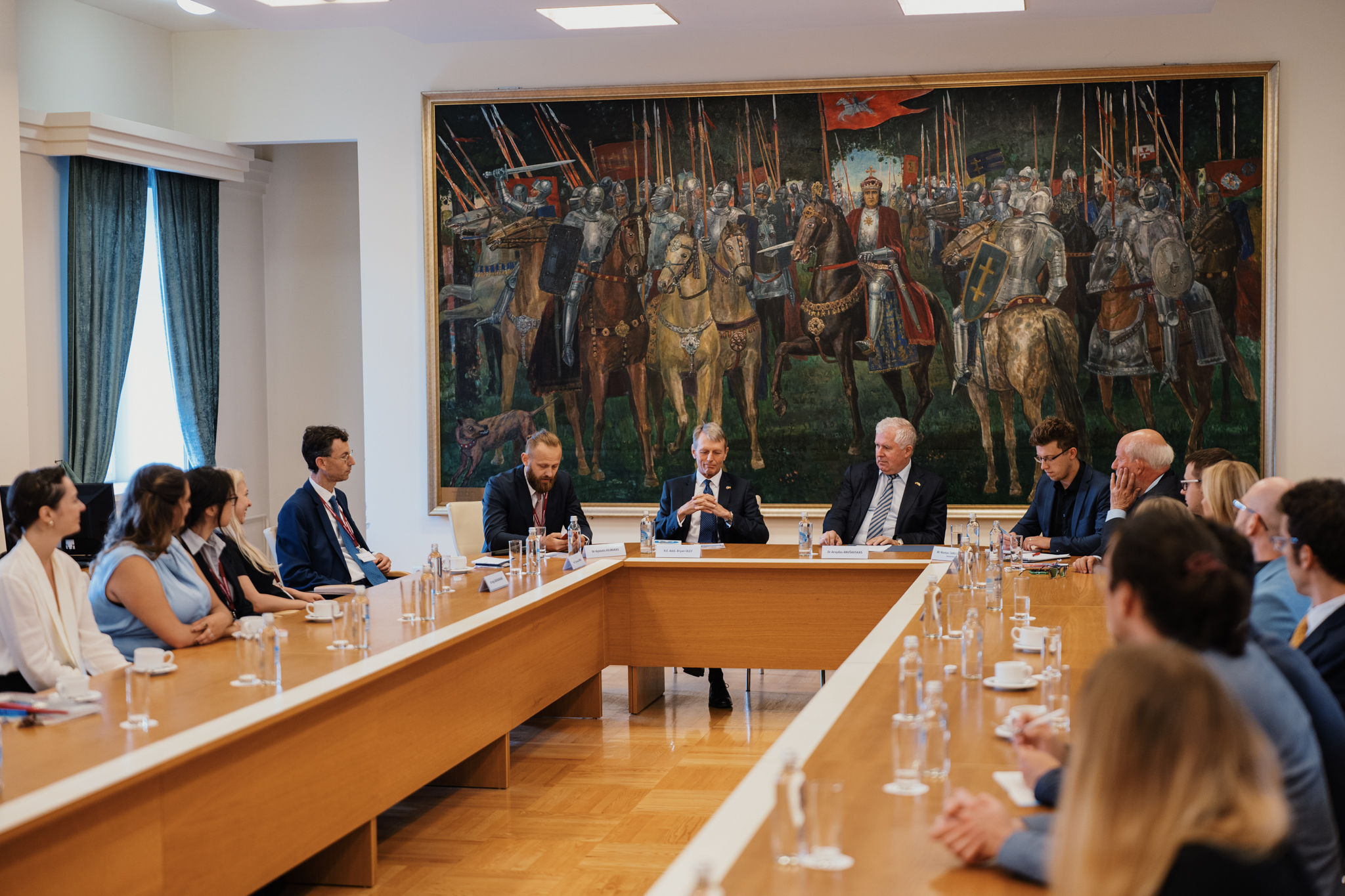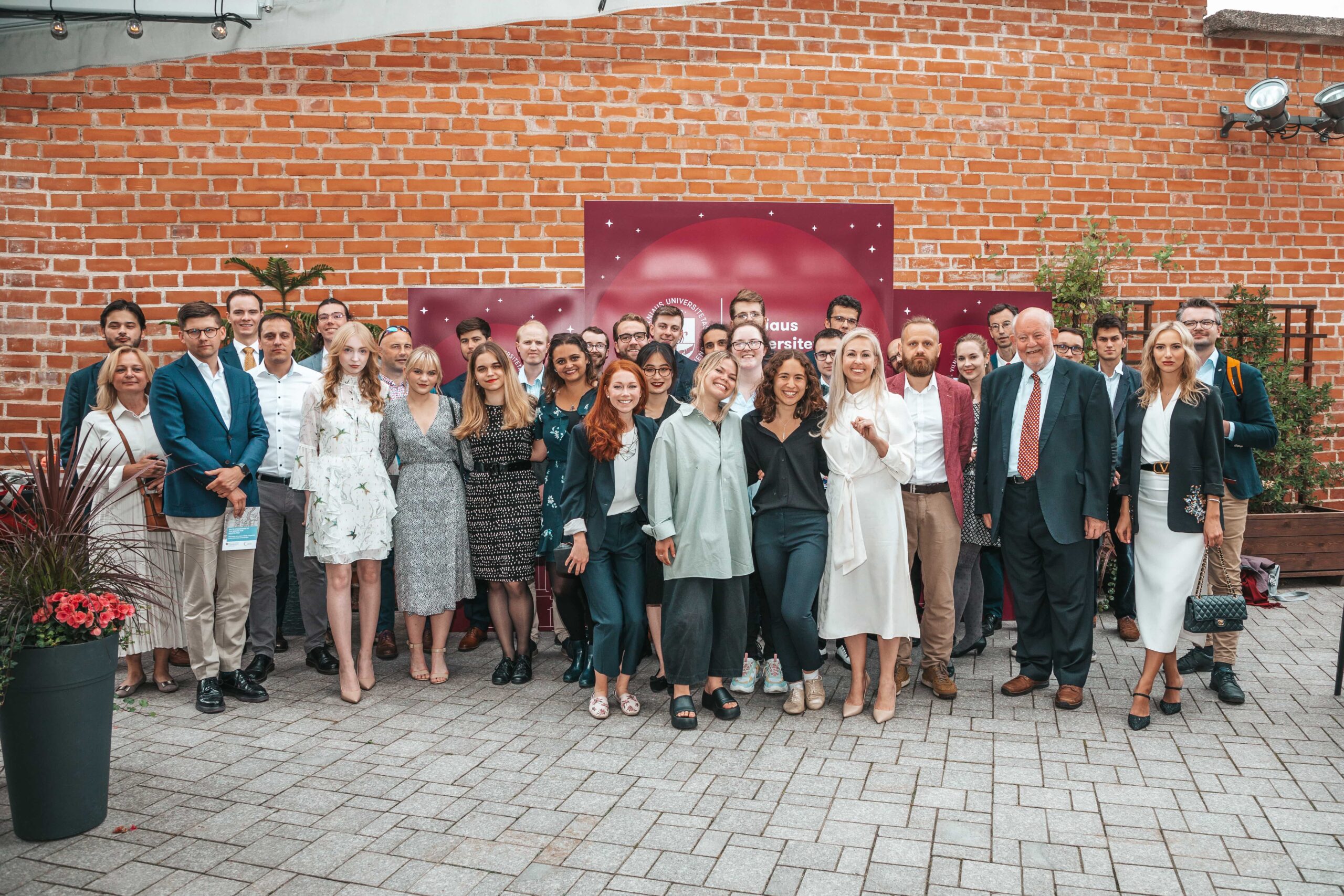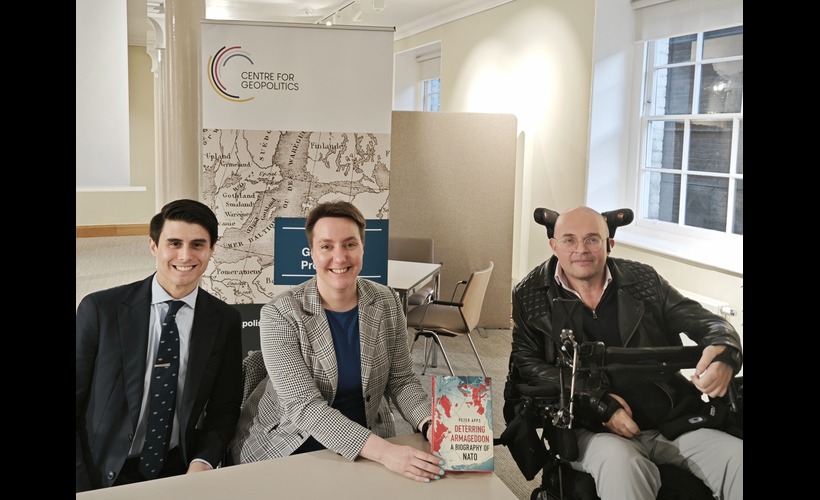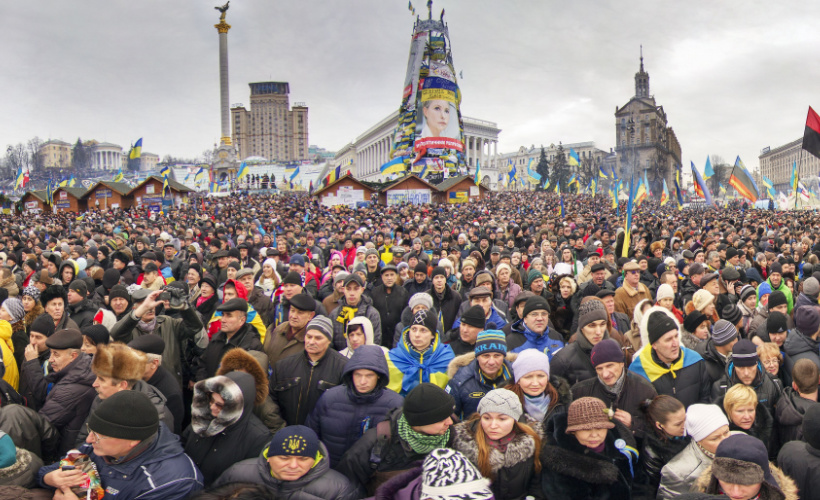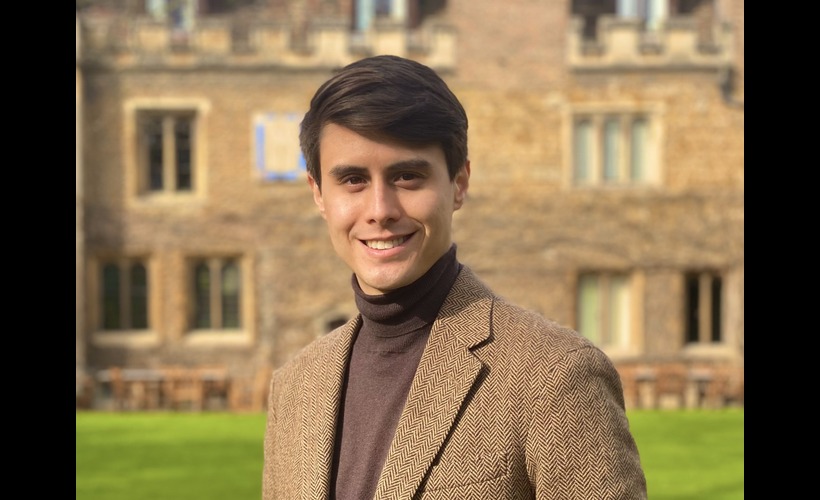By Elvira Tamus, Research Assistant
The 1st Baltic Summer School, organised jointly by the Centre for Geopolitics (POLIS, Cambridge) and the Faculty of History, Vilnius University (Lithuania), took place between 11-15 July 2022. The Centre was represented by Prof. Brendan Simms, Charles Clarke, Dr. Donatas Kupciunas and Ms. Elvira Tamus. 17 BA, MA and PhD students from Cambridge participated in the summer school – they were requested to introduce their study and research interests as part of the programme. The school started off with a welcome reception on Monday evening at the Palace of the Grand Dukes of Lithuania. On Tuesday, we listened to the welcoming speech of Prof. Rimvydas Petrauskas (Rector of Vilnius University) and Dr. Loreta Skurvydaite (Dean of the Faculty of History). Furthermore, we attended the lectures of Prof. Vasilijus Safronovas, Dr. Kestutis Kilinskas, Andrius Grodis, Dr. Inga Zaksauskiene and Prof. Brendan Simms. On Wednesday, we had student presentations: Antanas Terleckas (PhD), Lina Mumgaudyte (PhD), Teodoras Zukas (PhD), Jokubas Pukenas (MA) and Emilija Blockute (BA). Then, we received a tour from the Dean in the Vilnius University Library.
We started Thursday in the KGB Archive / KGB Museum with a workshop on methods and approaches to applied history along with the archive’s history and sources (Dr. Marius Emuzis, Prof. Dr. Arunas Streikus). Additionally, we had a closer look at specific archival documents. In the afternoon, we attended a roundtable discussion on past and present challenges to the Baltic region security, featuring Charles Clarke, Dr. Arvydas Anusauskas (Lithuanian Minister of Defence) and Brian Olley (HM British Ambassador to Lithuania). The programme concluded with two receptions – at the Ministry of Defence and the British Embassy. On Friday, we had a tour of the historical centre of Vilnius.
To sum up, the attendees had a number of fruitful discussions on British-Baltic relations, Lithuanian and Baltic history, security policy and geopolitics. We were also provided with a fresh insight into current research, conducted by both academics and students, and had the chance to discuss contemporary challenges, tasks and opportunities. Our students from Cambridge very much enjoyed the summer school, and many expressed interest in pursuing further studies in this field of research. It was also an excellent opportunity for scholars and students from Cambridge and Vilnius to get to know each other and share their ideas. In conclusion, the Baltic Summer School 2022 in Vilnius was a highly successful collaborative event that has hopefully paved the way for future summer schools organised by the Centre for Geopolitics and Baltic universities and further strengthened relations between the UK and this strategically important region of Europe.
